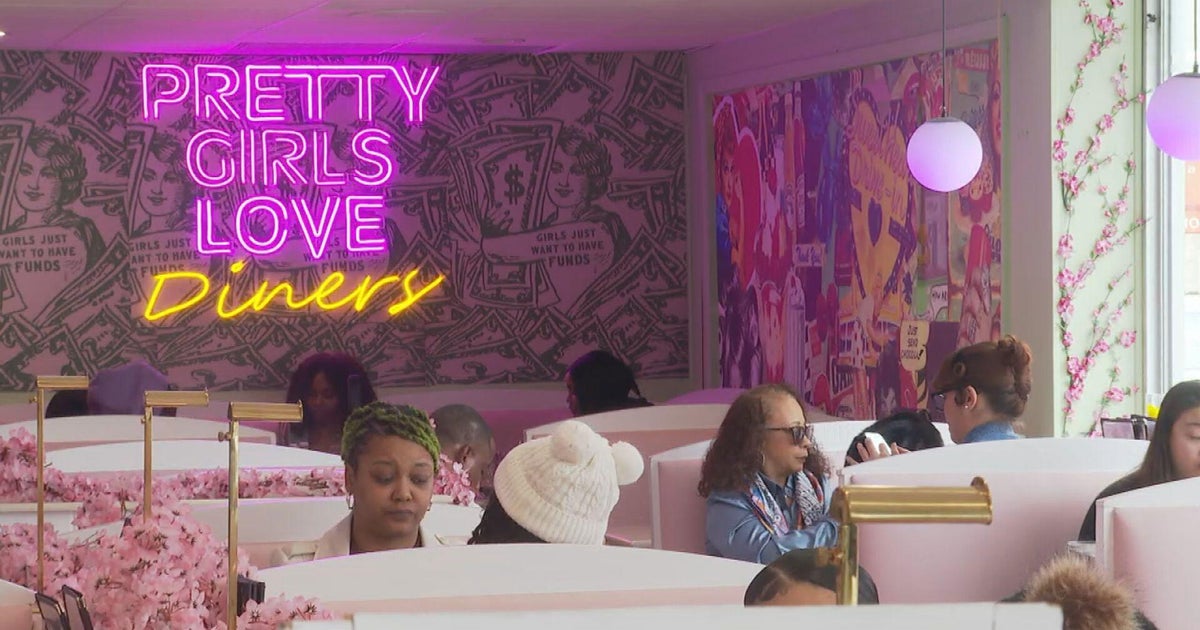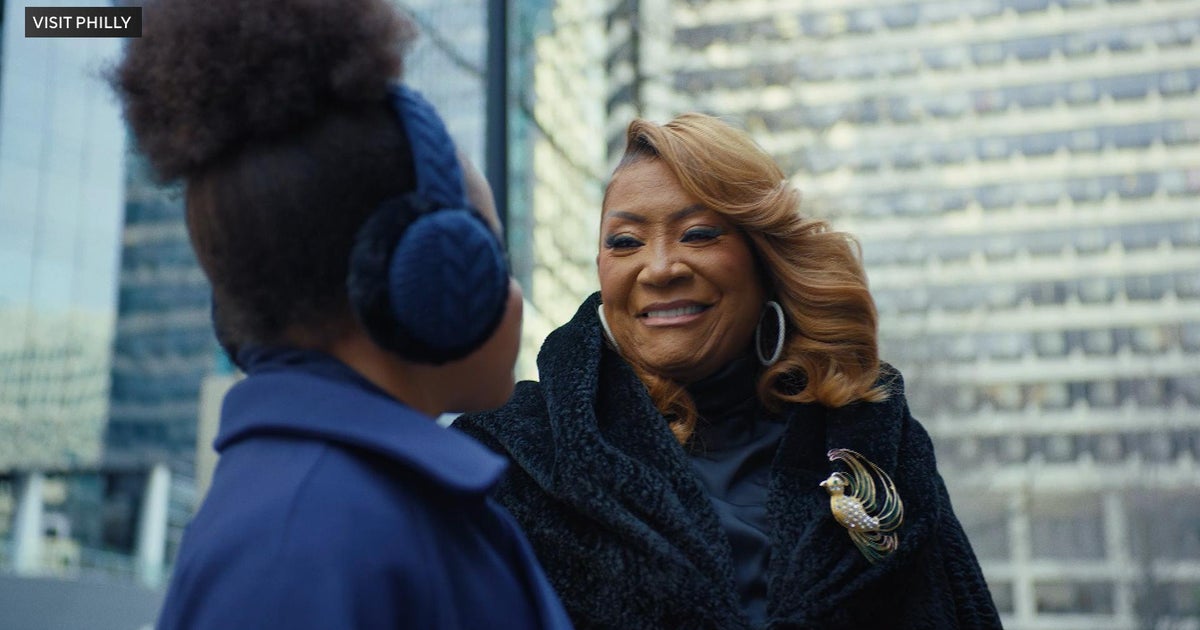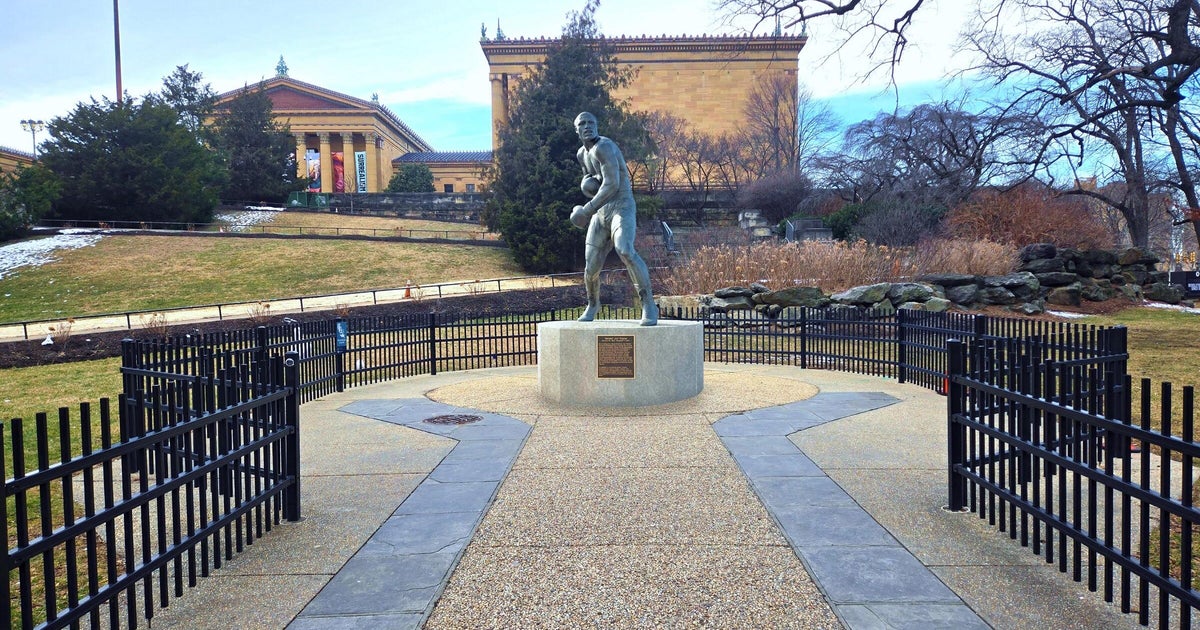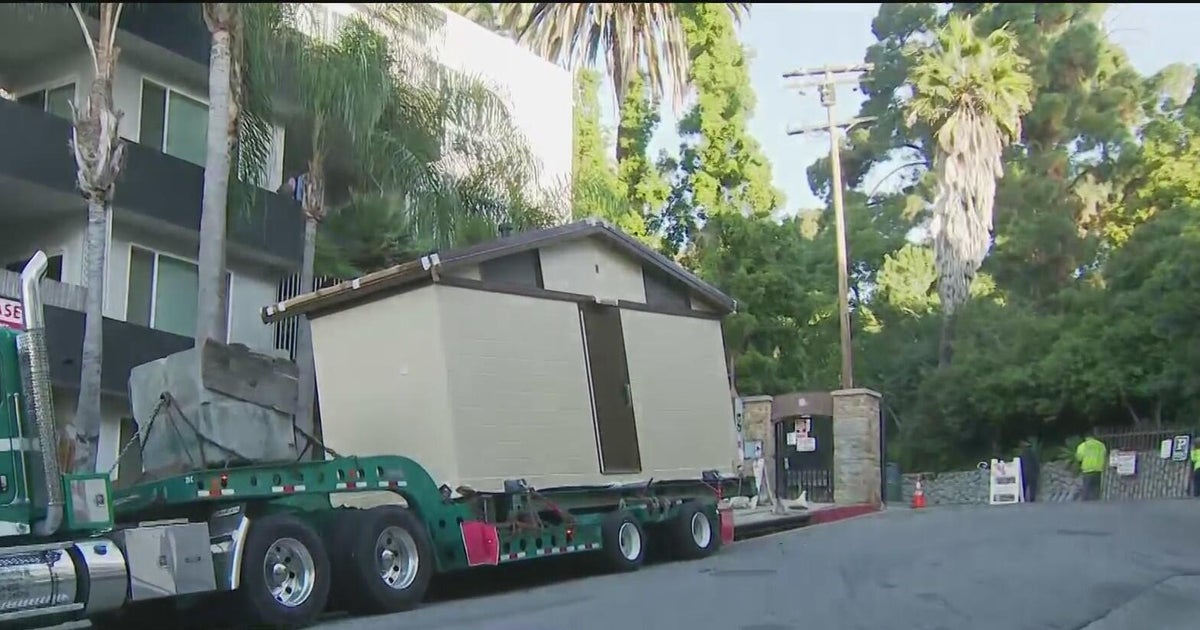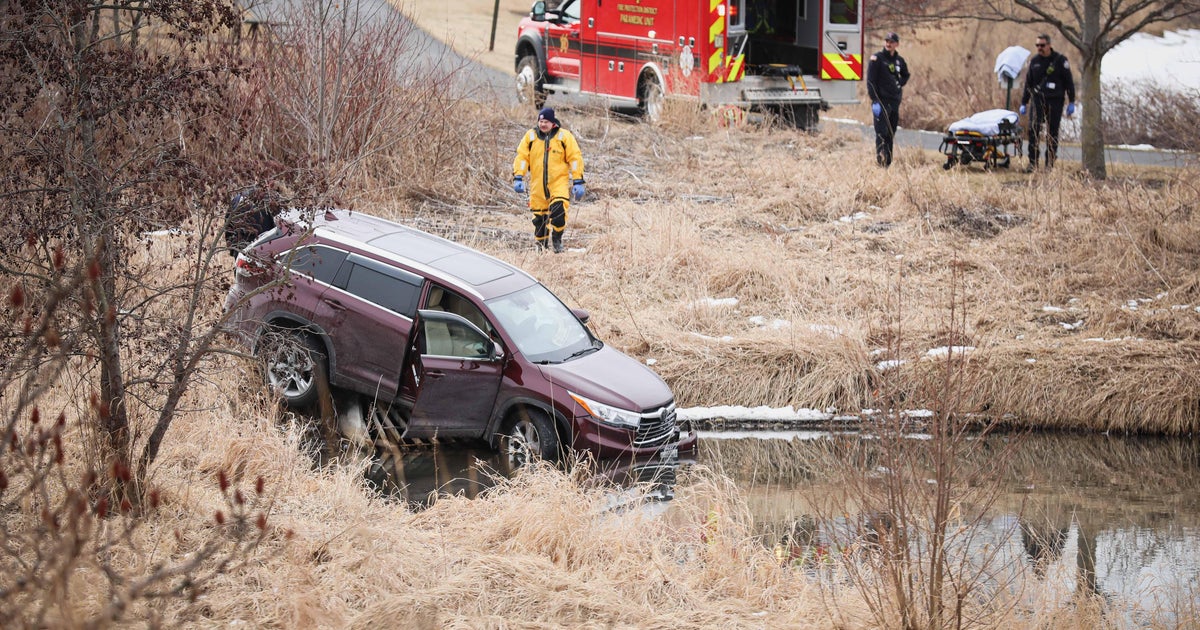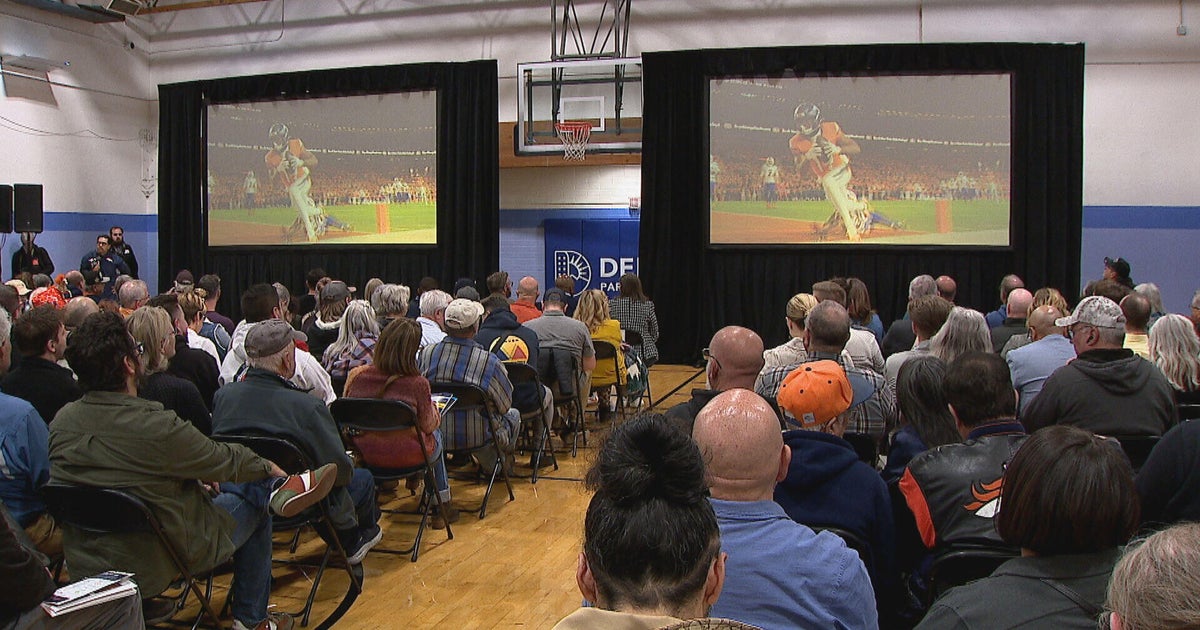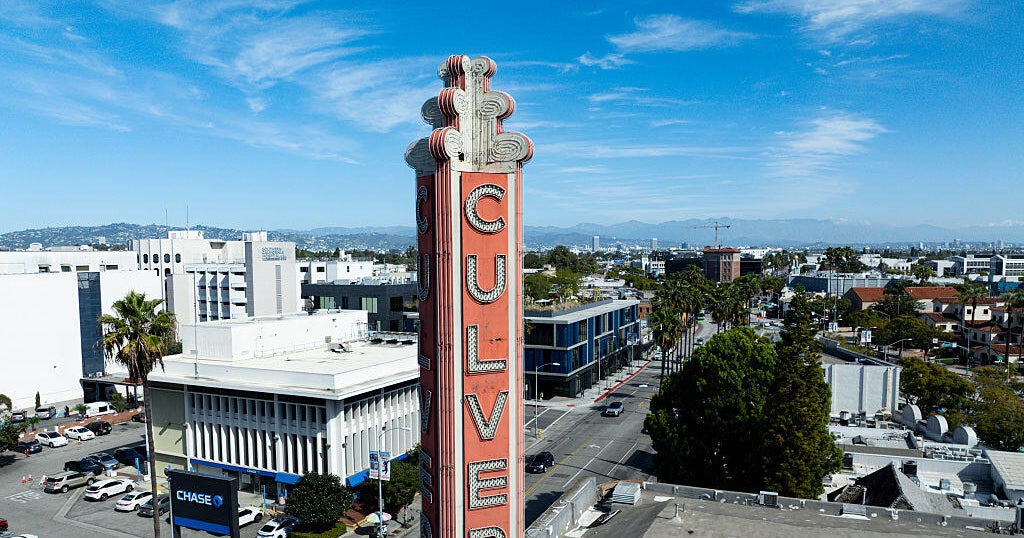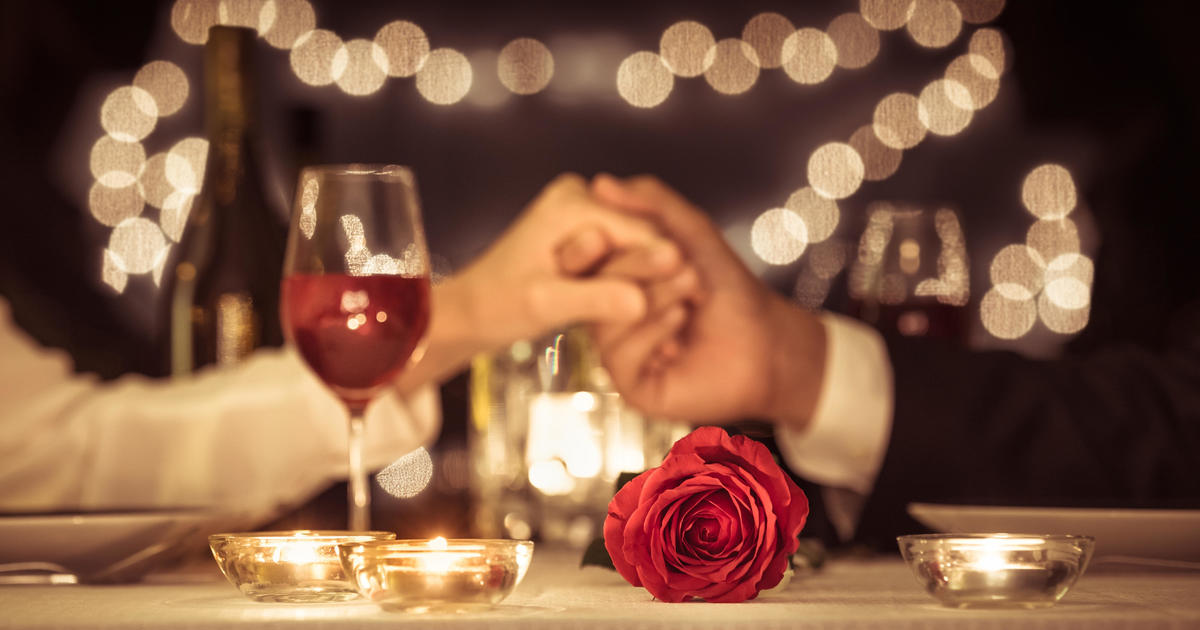Guide To Historic Germantown
Philadelphia's historic sites aren't all located in the the heart of the city -- a number of significant sites, as well as some impressive houses, are in Northwest Philadelphia, in Germantown.
Germantown wasn't always in Philadelphia. It was settled in 1683 as a separate town by a group of German families and was incorporated into the city in 1854. Today, Germantown is urbanized, but in its first few centuries, it was, for many, a haven from the city. Dennis Pickeral is president of Historic Germantown, a consortium of 15 historic sites.
"You think about places like a Stenton, our house here, or Cliveden -- or even the Deshler-Morris house, what the Park Service calls the Germantown White House, where Washington moved to during the Yellow Fever epidemic -- all of these were summer homes," says Pickeral. "Then you also have the people who lived in the village of Germantown, who lived here full-time."
Pickeral says Historic Germantown is notable for a number of reasons. "It's one of America's most historic neighborhoods. It's home to America's longest National Historic district. Seven of its member sites are National Historic Landmarks. If you come out to Germantown, you can touch on just about every aspect and salient point of American history, from the colonial period up through the 20th century. The sites are all very diverse. You have sites like Stenton, which is very early. You have places like Cliveden, which was the site of the only Revolutionary War battle fought within the current city boundaries. We have the city's only Victorian house museum. We have the home to America's first paper mill. We have an Underground Railroad museum, the Johnson House. It's just an incredibly diverse group of sites, and they all tell different and unique stories."
The 20th century site, the Aces museum, was used as an unofficial USO for African American soldiers during World War II. It interprets the stories of minority veterans.
"The sites aren't very far flung," says Pickeral. "They're all very close together, just really a couple mile radius of one another. Many of them are located up and down Germantown Avenue, so you can take the 23 bus, the historic way it was done to travel up and down Germantown Avenue, which, in and of itself is a historic road -- it started out as a native American trading trail called 'The Great Road.' So all of these places are pretty close together, and you can see them pretty easily."
Although the sites may be open different days and hours, Historic Germantown offers opportunities and programs that can make visiting easy and cost-effective. That's where the Historic Germantown Passport comes in.
"You can buy that for $15 for individuals, and that gets you into all the sites for a year. It's a great deal -- it's basically a dollar a site," Pickeral says.
A family passport costs just $25. For more information e-mail info@freedomsbackyard.com.
The most striking thing about Germatown is its lived-in vibe.
"People who come here really get a sense of authenticity in a way you don't necessarily at historic sites," says Pickeral. "Sometimes, it feels a little fabricated or contrived. It doesn't feel that way here. We have a brand that we developed called 'Historic Germantown -- Freedom's Backyard.' And I think that really rings true, you really do feel like you're in someone's backyard. You feel like you're in a kind of an urban village in Germantown, which is very different from many historic sites. It's a place where the past really does meet the present. And you get that sense that history and modern life are really intertwined here."
The best place to start planning your visit to Historic Germantown is the website, freedomsbackyard.com. There, you'll find information about each of the sites, as well as a list of programs and special events. - Molly Daly
There are a number of historic houses to visit in Germantown; a complete list can be found on the website. Each property has its own hours, so check their websites or call ahead. Here's a sampling:
Stenton
Stenton is an impressive 1730 Georgian plantation house built by James Logan, a scholar and statesman who served as William Penn's secretary; he was later elected mayor of Philadelphia, served as a justice of the colony, and, for two years, as Pennsylvania's acting governor. Logan was also a naturalist who tutored John Bartram in botany and mentored Ben Franklin. And if that weren't enough, the neighborhood in which Stenton is located is named for Logan.
Stenton stayed in the family until 1899, when the Colonial Dames of America took it over; it opened as a museum the following year. The furnishings are pieces from the Logan family -- and the tables are set with a wonderful collection of reconstructed china and glassware discovered during archaeological digs on the property.
Open Tuesday through Saturday 1-4pm
$5 adults; $4 students/seniors
Children under 6 free
4601 North 18th Street
Philadelphia, PA 19140
215-329-7312
www.stenton.org
The Ebenezer Maxwell Mansion Victorian House Museum and Garden
The Ebenezer Maxwell Mansion is the city's only Victorian house museum. It's easy to imagine 19th century heroines clad in capes sweeping from room to room, or a mustache-twirling villain lurking behind the stone outhouse. In reality, it was a family home -- the stone villa was built in 1859 by Ebenezer Maxwell, a cloth merchant who worked in Center City. It's lavishly furnished from floor to ceiling in what's best described as Victorian Eclectic fashion, with faux finished fireplaces, Scalamandre wallpaper, gilt mirrors and machine made carpets -- and that's just the parlor! You haven't truly experienced Victorian style until you've seen the Maxwell mansion, not to mention its lovely gardens.
Open for private tours Thursday, Friday, and Saturday Noon-4pm
$6 per person
200 West Tulpehocken Street
Philadelphia, PA 19144
215-438-1861
www.ebenezermaxwellmansion.org
Wyck Historic House, Garden and Farm
Of all of the historic Germantown houses I visited, Wyck is by far the most homey. Nine generations of the Wistar-Haines family lived there, and the furnishings and collections reflect their Quaker sensibilities, not to mention their reluctance to discard any object that might still be useful. The collection includes a chair once owned by Ben Franklin, children's furniture, toys, natural history specimens, Native American artifacts and a staggering array of commode chairs. The oldest surviving part of the house dates to the early 1700s; in 1824, it was renovated by the renowned architect William Strickland. Wyck offers garden enthusiasts a major treat: its rose garden, dating back to the 1820s, is the oldest in the United States still growing in its original plan, and the heirloom roses make for a visual and olfactory feast in the spring. In season, Wyck's fruits and vegetables, as well as its own honey, are offered in the Friday farmer's market.
House open 1-4pm for guided tours April 1st to December 15th Tuesday, Thursday, and Saturday
Garden open Monday through Saturday 10am-4pm
$5; $4 seniors
6026 Germantown Avenue
Philadelphia, PA 19144
215-848-1690
www.wyck.org
Cliveden
A picture of Cliveden should be in the dictionary next to the word "stately." This late-Georgian mansion was built as a summer house in 1767 by Benjamin Chew, a colonial Supreme Court Justice, and it stayed in the family for seven generations. On October 4, 1777, the Battle of Germantown was fought on Cliveden's grounds. The British, who had occupied the house, managed to fight off an assault by Washington's army -- a remarkable feat, considering the Redcoats were armed only with muskets and bayonets, and vastly outnumbered by the Rebel troops. Evidence of cannon fire is still visible on the house's exterior, and inside, in a first-floor study. The battle is re-enacted on the grounds every year.
Most of Cliveden's elegant furnishings are original, and several lovely sculptures grace the grounds.
Thursday through Sunday 12-4pm
Admission $10 adults; free for members of the National Trust for Historic Preservation
6401 Germantown Avenue
Philadelphia, Pa 19144
www.cliveden.org
There are some terrific eateries on or just off Germantown Avenue, in Germantown, Mount Airy, and Chestnut Hill.
The Rib Crib
The Rib Crib is a Germantown favorite, dishing up ribs and sides for take-out only.
6333 Germantown Ave
Philadelphia, PA 19144
Neighborhood: Germantown
Geechee Girl Rice Cafe
Geechee Girl's varied and seasonally-changing menu showcases the influences of South Carolina's and Georgia's low country.
Open for dinner Tuesday-Sunday starting at 5:30pm
Brunch on Sunday 11-2:30pm
6825 Germantown Ave
Philadelphia, PA 19119
geecheegirlricecafe.com
Trolley Car Diner
Classic diner fare can be found here, including breakfast all day, along with eclectic choices like bison burgers, paninis, Philly favorites, and vegetarian choices.
7619 Germantown Avenue
Philadelphia, PA 19119
215-753-1500
trolleycardiner.com
McNally's Tavern
McNally's is a friendly neighborhood bar that's famous for its signature sandwich, the Schmitter (trademarked, no less), an artful melding of the cheesesteak with grilled salami, tomato, grilled onions and special sauce on a kaiser roll.
8634 Germantown Avenue
Philadelphia PA 19118
215-247-9736
